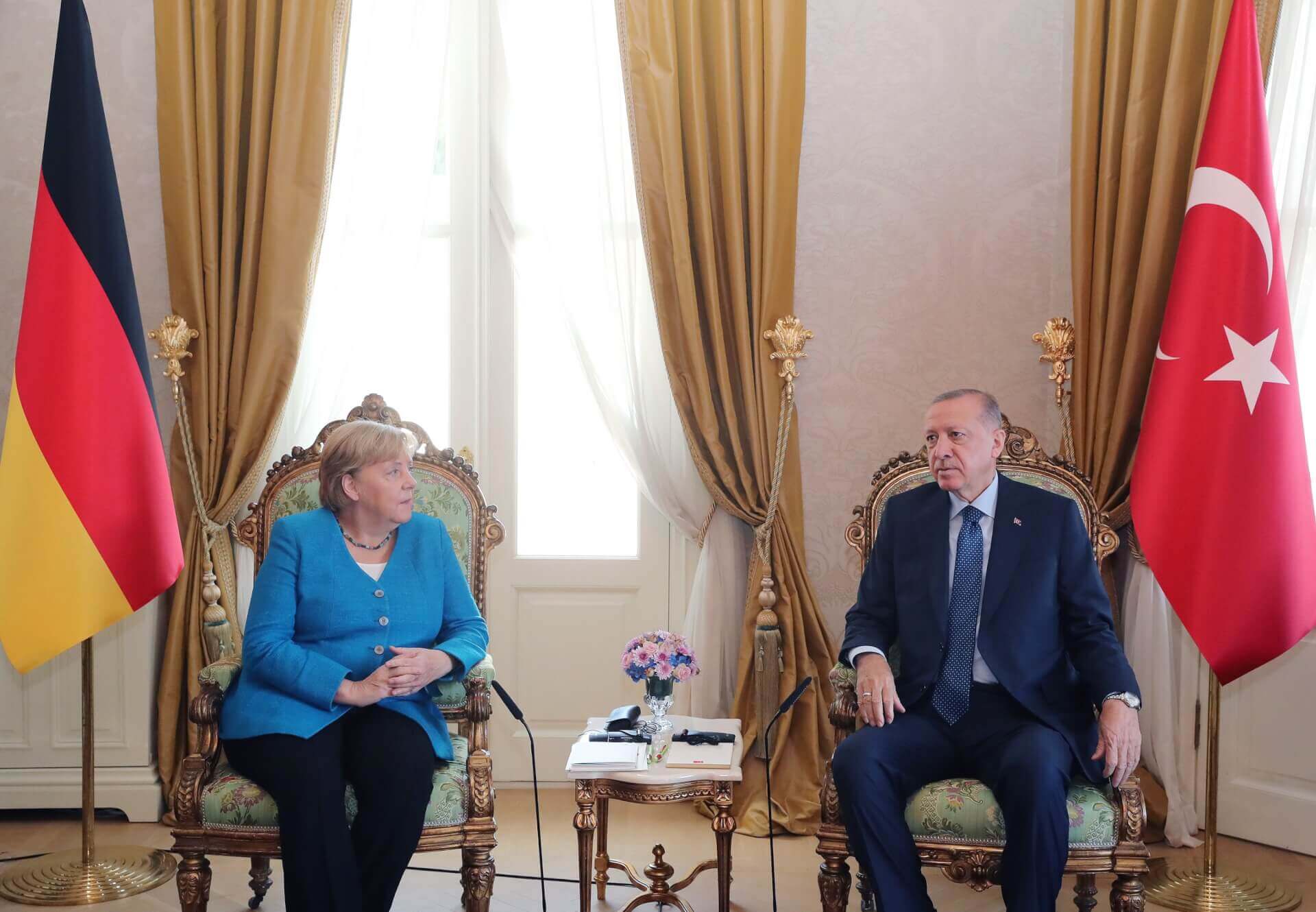German Chancellor Angela Merkel met Turkish President Recep Tayyip Erdoğan at the Huber Mansion in Tarabya, Turkey on Saturday.
During her farewell meeting with the Turkish leader, which lasted for an hour, the duo discussed Syria, Libya, racism, Islamophobia, bilateral relations, and trade. The leaders also talked about the migration crisis at great length. To this end, Merkel emphasised Turkey’s role in preventing another mass migration after 2015 and reaffirmed the European Union’s (EU) support to Ankara concerning refugees.
Merkel has helped create the ‘EU’s refugee pact’ for Turkey to prevent migrants from crossing the Aegean Sea and entering Europe. The pact provides financial assistance to Turkey in return for limiting the number of migrants and asylum seekers entering Europe; Turkey currently hosts four million refugees.
During a joint press conference in Istanbul, Erdoğan said, “Our close dialogue with Mrs Merkel has significantly contributed to not only bilateral matters but also to the resolution of regional issues. Mrs Merkel has never refrained from taking the initiative and assuming responsibility in many issues extending from the prevention of the irregular migration originating from Syria to the delivery of humanitarian aid to the north of Syria.”
He hoped that “our successful work with Mrs Merkel will continue in the same way under the new government.” Furthermore, Erdoğan expressed gratitude for Merkel’s support to Turkey’s bid for EU membership.
The Turkish President also touched upon the struggles of the Turkish community in Europe, three million of whom live in Germany. He remarked, “Racism, xenophobia and animosity towards Islam, unfortunately, remain to be the primary problems afflicting the Turkish community in Europe.” He thus called on European leaders to hold perpetrators of racially- and faith-motivated crimes to be held accountable while also “eradicating the social roots of cultural racism.”
After Erdoğan expressed hope that Merkel’s successor would take the baton forward in this regard, the German chancellor reassured him that both sides have common interests, and “that’s how the next federal government will see it.”
In addition, Erdoğan said both he and Markel noted the importance of EU-Turkey relations and the critical issues overshadowing bilateral ties, exchanged views on Eastern Mediterranean, Afghanistan, Libya, and Syria and committed to increasing bilateral trade to $50 billion at the earliest.
Merkel has often resorted to a pacifying approach towards Turkey, highlighting the common interests of Ankara and the West. Maintaining ties with Ankara proved to be a challenging task for Merkel during her 16-year term as German Chancellor, primarily because it coincided with a period when Erdoğan increased verbal attacks on European leaders. Germany has raised concerns about the influence of Turkish institutions in the country and banned some Turkish politicians from campaigning in 2017. As Merkel bids farewell, Turkish authorities fear that the future German government will be less tolerant of such differences.
Merkel, Erdoğan Discuss Syria and Islamophobia in Farewell Trip
During her farewell trip to Turkey, German Chancellor Angela Merkel discussed illegal migration, Syria, and Islamophobia, among other things, with Turkish President Recep Tayyip Erdoğan.
October 18, 2021

SOURCE: DAILY SABAH
